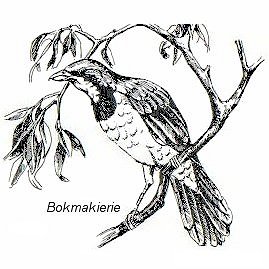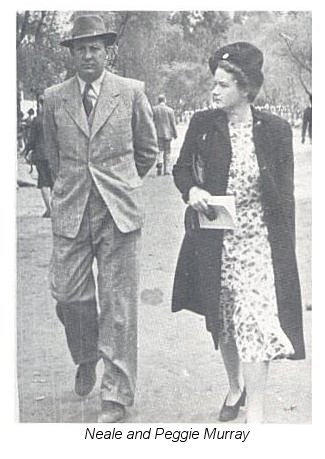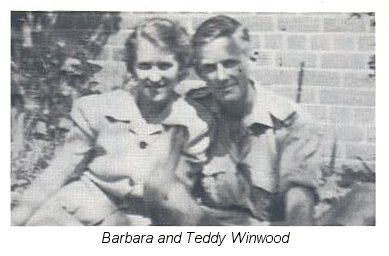
In March 1946 the Chief Medical Officer assured Dr. Ziervogel that a
Cottage Hospital for Melsetter was being put on the Estimates. With this
encouragement the Hospital Committee started making bricks and suitable sites
were considered in readiness for the Town Planning which was supposed to be
immirent. Little more was done to raise funds, as it was felt that the money in
hand and promised was enough to negotiate with the Government on the � for �
principle when the scheme was implemented. Years of frustration followed, with
no definite undertaking being given by the Government after the verbal assurance
in 1946.
The piped water system needed improving and was inadequate, and the
Circle Engineer recommended a diversion weir and furrow or pipe from the top of
the hill. He thought there was ample water for the present and immediate future
needs, and that the Waterfall stream held enough water to supply a town twice
the size of Umtali. The Government brought Lindley North, 1 500 acres,
with the intention of subdividing it into 100-acre plots for the settlement of
immigrants.
The community mourned the passing of a gentle and kind friend when F.
E. Cronwright died, aged 68, and appreciation of the services he had rendered
was recorded.
At the School F. W. J. McCosh came as Headmaster; Mrs. J. Smith, full
of energy and always knowing what bit of mischief was about to be tried, was the
other teacher and there was one matron. An epidemic of measles swept the school
and the small staff had a very difficult time on 24-hour a day duty looking
after the sick children and also teaching the well ones. One rondavel was the
only sickroom and others had to be emptied of stores and furniture with both
boys and girls ill, and a case of pneumonia complicated matters still
further.
After this the School got a second matron, and the School Council
pressed very hard for better sickroom accommodation, and in due course a small
sickbay was built on the site of two of the original rondavels.
Few local
farmers sent their children to the school with its primitive conditions and
State ward boarders, but Jim and Barbara Sinclair went in 1946, when Jim had
Edward Rawstorne to keep him company but Barbara, not quite six and a half, was
the only English-speaking girl boarder. 30 out of the 38 pupils were boarders.
Gradually from then
on the school filled with local pupils.
In December an Open Day was held and at the inaugural meeting of the
Parent-Teachers� Association (which never functioned very actively) the names of
Martin and Steyn were chosen for the School Houses. The following year the
School had its first swimming gala, held at the Hotel swimming-bath, and
presented a Pageant written and produced by Fred and Olga MeCosh, which retold
the story of the Gazaland Treks.

In March 1946 a well-attended public meeting discussed the pressing
need for a social centre, plans for which had been held up by the long wait for
Town Planning. A plan had been drawn up for building next to the Memorial Hall,
but as that precluded outside recreations taking place near the centre other
possibilities were discussed. Everyone agreed on the need for a centre: there
were no facilities for entertainment for the village community; those living at
a distance wanted to park their children somewhere with no inconvenience to
anyone else in order to take part in activities; and newcomers could more easily
get to know people if there were a centre. A list of suggested rooms with full
details of their purposes was read and discussed. The meeting appointed a
Recreation Club Committee, which worked hard at wider plans and in the meantime
made the Memorial Hall more comfortable and equipped it for some indoor games so
the village community was able to make use of it, and regular 2/ 6d dances were
held.
In 1947 a Play-reading Club had well-attended fortnightly meetings and
produced two plays in the Memorial Hall.
G. E. McLeod did an excellent job of
keeping the Library going single-handed, but with very little income and
no new
books it was really moribund when in 1947 he asked the W.1. to take it
over. The W.I. Library sub:Committee was immediately formed and worked extremely
hard at the mammoth task of sorting through all the old books, selling those for
which a market could be found, burning hundreds of absolutely useless ones, and
cataloguing the remainder. During the next few years the W.I. raised money
locally, applied successfully for a Government � for � grant, started restocking
the shelves, publicised the amenities and canvassed for new subscribers, and got
the Library going again very successfully with a paid Librarian. The W.1. took
its responsibilities seriously in administering such a valuable property which
belonged to the whole community.

In 1947 A. C. Soffe bought Tilbury and Dunstan from G. J. van Riet, who
had bought the farms from English and had employed Schalk Kioppers to supervise
his 1 200 head of cattle. Soffe intended to concentrate on cattle and
agriculture, and sent out a small pedigree herd of Aberdeen Angus, some
Herefords and Afrikanders, and a Jersey herd to provide milk for the staff.
Pastures and crops of maize, potatoes, peanuts, pineapples and 1 200 citrus
trees were planted, with Tilbury the first in the district to have overhead
irrigation. Investigations were made into the possibility of other development:
a Dutch cigar tobacco expert from Indonesia would in his enthusiasm have
transformed the farms overnight; tea experts declared the property a planter�s
dream, and tea seedheds were established, but there were only a dozen Africans
living on the 21 000 acres and locals warned there would always be a shortage of
labour for a tea proposition � this was subsequently proved incorrect, with a
happy and contented labour staff.
The Scenic road was the only means of access and from Rocklands the
track went down the Haroni valley through Vooruitzicht, with eleven gates from
there to Tilbury. Mud and swollen rivers were accepted hazards, and on one
occasion the seven-ton lorry took eight days to reach Tilbury from Umtali.

The only buildings were a small brick under iron cottage with a
permanently flushed �lavatory� over a furrow, two large stone and dagga sheds
and a dipping tank. The first task was to build staff houses with materials,
including sand, carried all the way from Umtali.
After the War there was an influx of new farmers, who all contributed
to Melsetter�s progress. Permanent well-built houses were erected on most farms
and development carried out, but all who tried did not survive the difficulties
of farming here.
During the Second World War F. Neale transferred his farm Westward Ho!
to his godson Neale Murray, then an S.A.A.F. bomber pilot. When he was
demobilised Neale spent a year at Fairview learning about farming and conditions
here, and when Peggie joined him in 1946 they started farming on Westward Ho!,
sold it later to the B.S.A Co., and settled on Bokkraal, bought from Katie
Cilliers, and concentrated on cattle, maize, orchards and tree
plantation.
Springvale was bought by Teddie and Barbara Winwood, whose main
farming lines are cattle, crops and avocado pears with which they did very well
with air-freighting overseas before U.D.I.
On a Sunday in October a Mr. and Mrs. Green came to Albany. Coming from
Bulawayo, they found it a pleasantly warm day, but were very impressed when the
Murrays, Dr. and Mrs. Rose, John Maurice and the Geoff Sinclairs arrived, and
each family as they got out of their cars said spontaneously: �Isn�t it
appallingly hot?� If this was Melsetter�s hottest weather, Edward and Alicia
Green felt confirmed in their feeling that this was where they would like to
live. They spent the night, Pat and Edward rode over the top half of Albany the
following day, arrangements were made for the Greens to buy that section, and
soon afterwards Edward and Alicia moved on to Mutzarara.

Before tackling the farm Edward got Lofty Oliver to survey it. Lofty, a
burly 6' 4", and Edward, who was short and slight, spent a weekend at Albany and
when they set off on a one-day survey trip on a very hot February day, Lofty
loaded up Edward and an African with the theodolite and necessary heavy
equipment, and he himself was burdened with one footrule. His recollections of
the effort are not very accurate!
�Probing new frontiers brings to mind our early struggles on Mutz: how
we explored those rugged fastnesses, as yet untrodden by the foot of Bata, and
in particular that grand Epic of endurance, THE ASCENT OF TREE �F�! What a
triumph that was, when you and I finally made it to the topmost branches and
looked out for the first time over that heaving wilderness (which you and Leish
went on to transform with your inimitable energy and art into lovely Mutzarara).
To the south shimmered Mount Silinda and due east was PENI. We agreed how
felicitous the name was, for had it been plural it would almost certainly have
attracted undesirable elements to the area, and it typified that innate sense of
Dignity and Restraint so characteristic of whoever named it.
�Then you abandoned me above the Snowline and pushed off mumbling about
having to telephone to Leish. I remember calling.., and calling.., and how the
foolish sounds were instantly whistled into shreds by the shrieking icy blast,
and I couldn�t find you... How I survived, bowed under the weight of ALL the
survey kit, I�ll never know. The last 3000 feet of the descent I perforce
accomplished by sliding in a sitting position down the frozen surface of the
stream, with acute anguish accompanying the combined odour of smouldering khaki
shorts and gluteal skin as I reached a speed rate of over 136 miles per
hour.
�For an introduction to a new neighbour it must have been a stiff test
for Pat and Shirley: I was covered in snow and icicles and smelt like a
braaivleis, and they could hardly tell which end of me to shake hands with � but
they took it all without batting an eyelash. What hurt even more than my raw
tail was when I was led in and found you toasting yourself in front of the fire,
looking as smug as a pregnant bedbug, and you said: �Hello, old man just dropped
in? You ARE late.��
Lofty and Chris Oliver bought a portion of Mutzarara, Marangi, and for
various spells lived there and developed orchards, but Lofty�s real interest was
civil engineering, to which he returned. Edward�s brothers, Will and Charles,
and sister Katharine Daniell, took over another section of Mutzarara,
Claverdon.
John and Elizabeth Blackwood Murphy came to live with Elizabeth�s
parents, Dr. and Mrs. Rose, while they built Carpenham on a portion of Lemon
Kop, where they have developed a garden of outstanding interest and
delight.

Dr. and Mrs. Chiko Mueller established fruit orchards on Nyashama.
Dr. Mueller�s accounts of personal experiences of the Resistance Movements in
Yugoslavia were of great interest. He was a great wine-maker, and tried hard,
without success, to get the Government to grant licences to home producers.
After he died, Phoebe-Ann carried on the peach project assisted by her sister
Alice Beevers until ill-health in 197Q. forced her to leave.
John and Edna Kioppers came back to Melsetter and made their home on
Guavana, a section of the Kioppers� family farm, Hillside, until ill-health
forced them to leave in 1969.
Cecil and Mary Marshall started farming on Orange Grove where Cecil�s
brother Hugh joined them, but after a few years they gave up farming and turned
to business interests in Melsetter. On Westbourne, Dickon and Brenda Jessop
started with poultry, cattle and a store. Heather Stelp bought Boskatrand and
Nzuzu, while in the early 1950s Deysbrook was bought and developed on mixed
farming lines by Jim and Helen Syme.
In 1948 marauding lions took toll of cattle, and it was an anxious time
while they were reported on different farms.
Also in 1948 the
Ebenhaezer Committee formally handed over the Pioneer Memorial to the
care of the Village
Management Board, and gave �10 for upkeep
and repairs with promises from individual members of
more
from themselves or their children if it should be
needed.
Louis Beck, the V.M.B. Chairman, said that the
Board members felt privileged to be present on such
an
occasion and that the Memorial would inspire and impress
newcomers and would be a constant reminder to all of the hardships and
difficulties overcome by those who started Melsetter. Andries Kok drew
attention to the fact that names on the Memorial were English as well as
Afrikaans, as both peoples had started the district together, and were both
still living in it. The five-year anniversary continues to be marked by a solemn
service in the Dutch Reformed Church and a procession to the Memorial, where
speeches are made and wreaths are laid.
The Melsetter-Chipinga branch of the British Empire Service League was
formed, which held annual meetings alternately in Melsetter and Chipinga.
An account appeared in the Umtali Advertiser of a Mystery Ruin in
Mountains, of which the history was unknown and that it was thought that thirty
or more years ago there was a Portuguese outpost on the border into Rhodesia.
This underlines the need for facts to be recorded, as readers will remember that
after 1928 the Portuguese Border Post was still occupied. The 1948 article
described the path leading into the gap in the great mountains as having been
cut by hand, and over it white men were carried in litters. �Three miles through
the gap is the house ruin and on either hand tower giant sandstone rocks. Two
long avenues lead up through the deserted terraces and crumbling remains of a
flower garden. Fire had blackened the ruin and the great trees which experts
told me were more than 50 years old.�
Melsetter continued to wait impatiently for the promised Town Plan, and
at last in May 1947 a surveyor started work. One result of the survey was that
the Dunbarton Guest House was declared to be in a business area but was not
classed as a business; the McLeods sold it soon afterwards, and when Hugh and
Bobbie Pritchett bought it they renamed it The Anchor Private Hotel. Hugh put in
electricity and offered to provide a power line to the Memorial Hall, but his
offer was not taken up as soon afterwards he sold the Anchor. The Pritchetts
moved from The Moorings, which they had bought from Jordaan who had built it and
which the Marshalls bought later, and farmed at Pembroke Valley until the family
later left Melsetter.
During 1947 the Memorial Hall verandah was widened on the upper side
with money raised by the W.I. in order to ease the problem of serving teas
there.
In May 1948 a Town Planning Officer brought a draft redistribution
plan, which he said was the first of many, only the rough thing, planned for ten
years ahead, and that six months would elapse between the final approval of the
plan and action in the implementation. A model of the plan was seen here
fleetingly and taken back for exhibition elsewhere, and when Melsetter asked if
it could be returned here it was stated that the model had deteriorated- beyond
repair.
Another year passed with no further news, and when the Minister for
Internal Affairs came he was greeted with a memorandum from the F.A. and the
V.M.B. setting out complaints.
At the end of June 1949 the T.P. Officer said that the Melsetter Town
Planning Scheme would be published in a few days� time, but as finance was not
available nothing could be done immediately. The V.M.B. asked whether urgently
needed buildings could be erected before the Scheme actually came into
operation, and the Officer said that he would enquire into the matter. He was
unable to give any indication of the prices of the new stands.
In July 1949 the Scheme was published, with Melsetter planned as a
Tourist Centre, said to be after the style of a Swiss village. The centre of the
Town would be the Voortrekker Memorial in the market square, and the plan
allowed for a hospital, six hotels, school site, sports ground, location,
abbatoir, eight industrial sites, 101 residential stands, public gardens,
trading sites, and an ornamental and boating lake between the town and the
Chimanimani. The Police Camp, Memorial Hall and Government offices would remain,
and allowance had been made for Cemetery and Churches.
After the utter neglect which Melsetter had experienced, the scheme
struck everyone as grandiose. If slow and steady development had been allowed in
the previous eighteen years some more natural growth might have been seen. No
mention was made of who was to finance items such as six hotels, the lake and
the public gardens. The industrial site had no road to it, and even if one could
get there, no water was available. Objections and problems continued for
years.